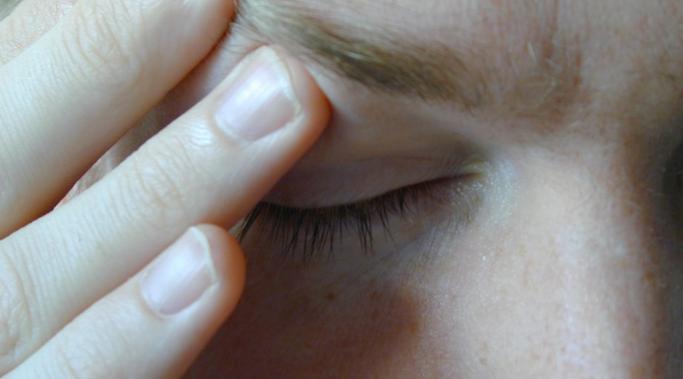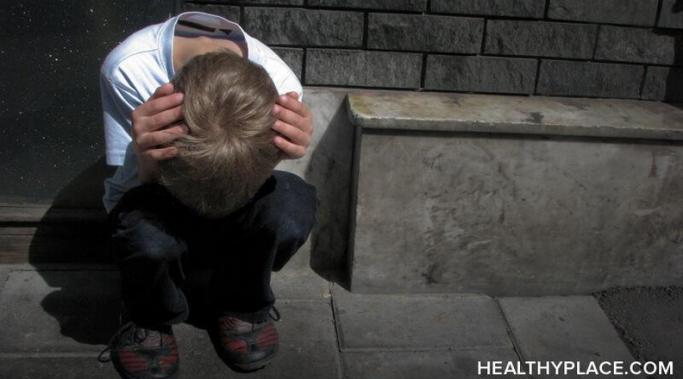I've been having a really hard time. Immobilized with depression. Frozen in time and agony. The pain of blinking keeping me weeping sporadically throughout the day.
And so today I am angry. Oh sure, I'm depressed too, but I'm also largely angry. I'm hateful. I hate everything from people to stoplights to walking to moving my eyeballs. I'm just angry that I'm alive.
But I have chosen this anger. I have chosen the anger over the depression because it is more useful. It's better to hate everything because hate comes with energy, depression does not.
Impact of Bipolar
"Life is pain, highness. Anyone who says differently is selling something." ~The Princess Bride
Life is pain. Or, at least, it can be. I've found that during severe episodes every breath, is, in fact, pain. There is nothing else. Just pain or unconsciousness. I prefer unconsciousness.
One of the problems with mental illness is that it is episodic. Particularly in the beginnings of mental illness, someone will have an episode of illness, and then an episode of wellness. While I'm never against episodes of wellness, this does lead to a problem: when we're well, we convince ourselves we don't have a problem and refuse to get help.
This is normal human behavior. No one wants to believe there is anything wrong with them. So it's natural to deny problems when they are not readily harming us. Unfortunately, this means that many people don't get help for a mental illness.
When we're sick, we're too sick to get help. When we're well, we deny we need it.
I hate having bipolar disorder. It's my least favorite thing about me. For all the talents I have developed, possibly in part, due to bipolar disorder, I would give those up in a moment to simply not be sick.
But I did realize something about bipolar disorder - just surviving it is an achievement. And if I can survive bipolar disorder then I can do anything.
When I got diagnosed, I was attending a university and on my way to getting a bachelors of computer science. I was a pretty fastidious student in my first year and my grades were excellent. But before I knew what a mental illness was, I became sick and my grades dropped. It was only some time later that it became clear it was because I had bipolar disorder.
And after months of treatment, nothing was working and one day, my doctor said to me,
"You should drop out of school; you're never going to be able to finish your degree."
Really? Pshaw.
Everyone who takes psychiatric medication is aware of side effects. Common side effects include things like dry mouth, headache, nausea, fatigue and so on. I've been a cluster of side effects longer than I can remember.
(My very favourite is the one where I couldn't open my eyes in the morning and I thought I was blind. Ah, but for another day.)
And one of the side effects I have had several times with medications, particularly antipsychotics, is temperature dysregulation. In other words I'm always freaking cold (or way too freaking hot).
I write an obscene amount. Here, plus my blog plus I write for other blogs and do technical articles. Oh, and I'm working on a book.
This is very difficult though as I've found that a highly symptomatic bipolar brain turns into something more akin to a bipolar rock.
Despite what many people think, mental illness isn't just about "being sad" or hallucinating or feeling suicidal - mental illness is about physical pain too. One of the ways people get diagnosed with illnesses like depression is due to physical complaints (what doctors call somatic pain).
When you have a mental illness, not only your brain hurts, but your body does too.
There is a popular misconception that depression is the same thing as sadness. I understand why you might think this if you don't have experience with depression. Depression is sad; it's true. But depression is a lot of other things as well. It's a whole new echelon of sadness. It's sadness 2.0.
This morning is a good example - I woke up depressed and the experience is nothing like sadness.
Recently a commenter asked how to tell her boyfriend about her bipolar disorder. Unfortunately, this commenter had negative past experiences in dealing with her bipolar disorder in relationships. In fact, people had broken up with her because of her disorder. A scene that is far too common in mental illness.
So, when is the right time to tell the person you're dating you have bipolar disorder?


